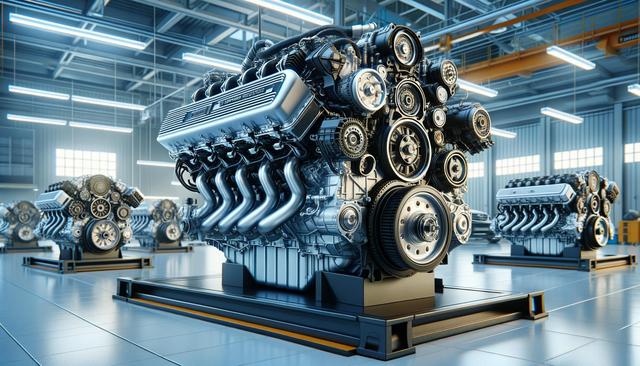Understanding the Value of Low Mileage Used Engines
When a vehicle’s engine fails or starts to underperform, replacing it with a low mileage used engine can offer a cost-effective alternative to purchasing a brand-new engine or a new vehicle altogether. These engines, often sourced from vehicles that were involved in accidents or retired early for other reasons, typically have fewer miles on them and less wear and tear. Because of this, they can provide reliable performance at a fraction of the cost.
Low mileage used engines are particularly valued because they offer a balance of affordability and operational integrity. Since they have not been used extensively, the internal components like pistons, crankshafts, and valves are usually in better condition compared to high-mileage counterparts. This means less likelihood of immediate repairs and a longer lifespan post-installation.
Benefits of Choosing a Low Mileage Engine
There are several compelling benefits to selecting a low mileage used engine for your vehicle. Here are some of the most notable:
- Lower Cost: Significantly cheaper than new engines or total vehicle replacements.
- Reduced Environmental Impact: Reusing engines supports sustainable automotive practices by reducing waste.
- Quicker Availability: Used engines can often be sourced and installed more quickly than ordering new parts.
- OEM Specifications: Many used engines are original equipment manufacturer (OEM), ensuring compatibility and performance.
Additionally, many suppliers of low mileage engines perform rigorous testing and provide warranties, which can give buyers added peace of mind. This makes them a practical option for budget-conscious drivers who still demand dependable performance.
How to Evaluate a Low Mileage Used Engine
Not all used engines are created equal, so evaluation is key before making a purchase. One of the first things to look at is documentation. A trustworthy supplier should provide paperwork that verifies the mileage and the engine’s history. This might include vehicle identification number (VIN) details, maintenance records, and information about the source vehicle.
Other aspects to consider include:
- Compression Test Results: This can indicate internal engine health.
- Visual Inspection: Check for signs of rust, oil leaks, or physical damage.
- Engine Warranty: A warranty of at least 30–90 days can be a sign of a reputable seller.
It’s also beneficial to work with a certified mechanic either to inspect the engine before purchase or to handle the installation, ensuring it functions correctly once installed in your vehicle.
Where to Find Reliable Low Mileage Used Engines
Finding a trustworthy source for a low mileage used engine is critical to getting the most value from your investment. Reputable auto recyclers, salvage yards, and specialized engine suppliers are among the best places to start. Online platforms can also be useful, but it’s essential to verify the credibility of the seller.
When evaluating a supplier, consider the following:
- Customer Reviews: Positive feedback from other buyers can be a strong indicator of reliability.
- Warranty and Return Policies: These protect you in case the engine doesn’t perform as expected.
- Certifications: Some suppliers are certified by recognized automotive organizations, which adds a layer of trust.
Always avoid deals that seem too good to be true. Extremely low prices with no documentation or warranty are red flags that could indicate hidden issues or even fraudulent practices.
Installation and Maintenance Tips
Once you’ve secured a low mileage used engine, proper installation and maintenance are key to ensuring its longevity. It’s advisable to have the engine installed by a qualified automotive technician who can check for compatibility and install it according to manufacturer guidelines.
After installation, following a consistent maintenance routine will help keep the engine in optimal condition. This includes:
- Regular Oil Changes: Use high-quality oil and follow recommended intervals.
- Coolant System Checks: Make sure the engine stays at the proper operating temperature.
- Air Filter Replacements: Clean airflow improves engine performance and efficiency.
- Spark Plug Maintenance: Replace as needed to ensure smooth combustion.
Monitoring the engine for any unusual noises, leaks, or performance issues can also help catch potential problems early, saving you from costly repairs down the line.
Conclusion: A Practical Investment for Long-Term Value
For vehicle owners seeking a dependable and economical alternative to buying a new car or engine, low mileage used engines present a smart solution. They offer a combination of affordability, reliability, and environmental sustainability that appeals to a wide range of drivers. By taking the time to evaluate options carefully, verify mileage and history, and ensure professional installation, you can extend the life of your vehicle with confidence. Whether you’re repairing a daily driver or restoring a project car, exploring the market for low mileage used engines could be the key to getting back on the road efficiently and effectively.







